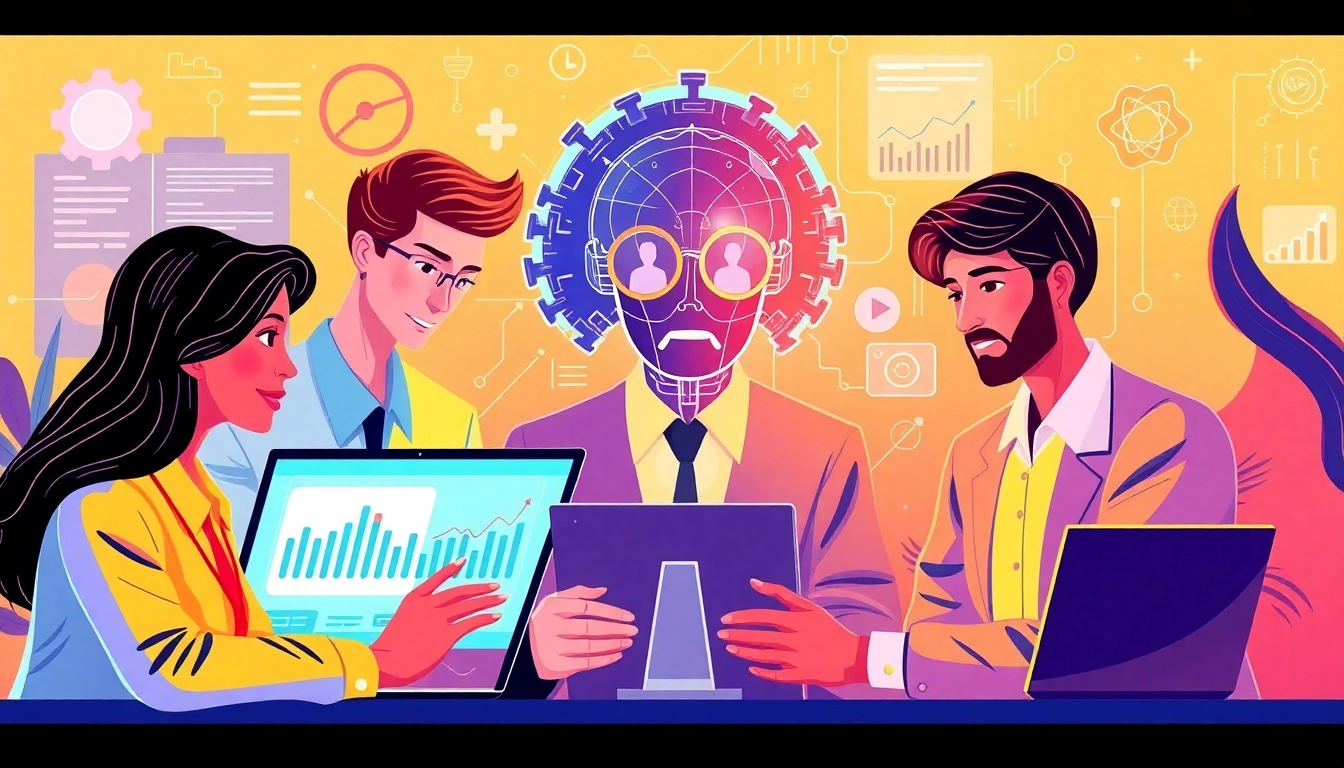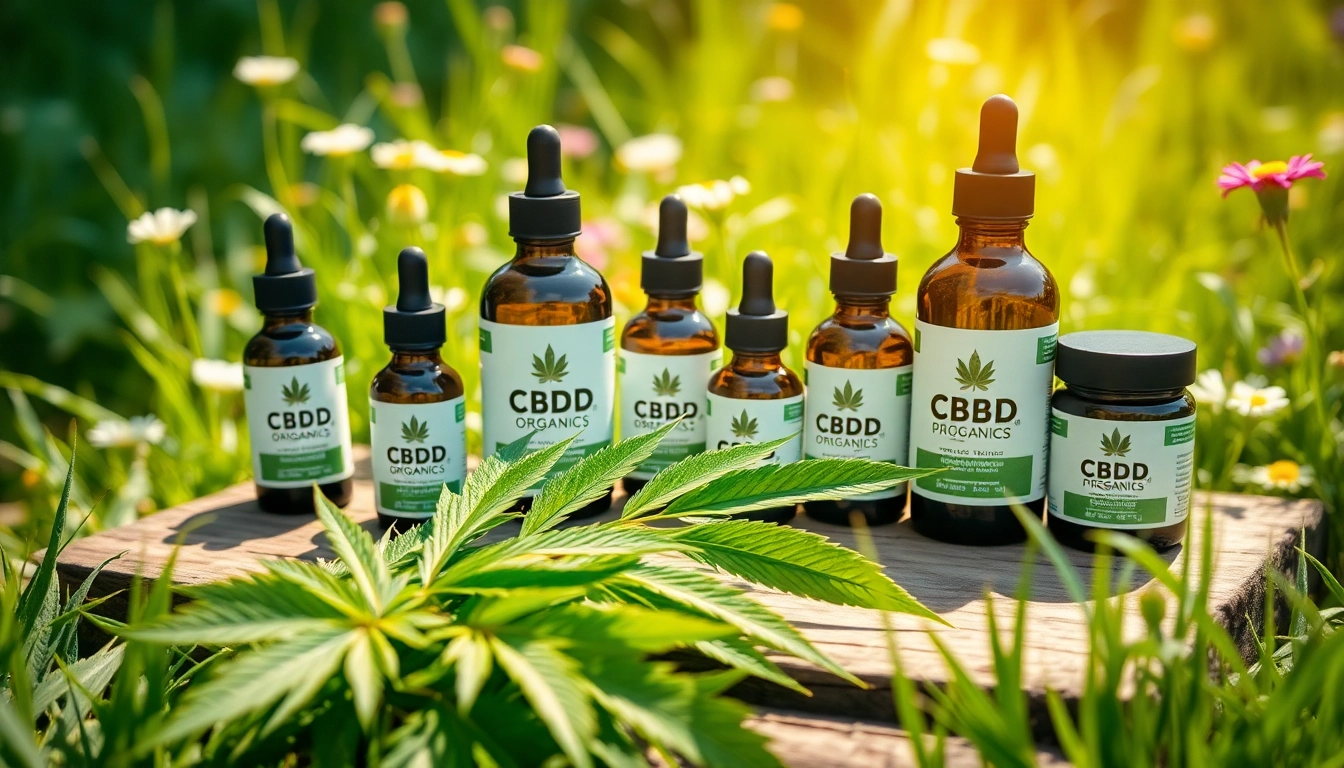Understanding AI Marketing Agents
What are AI Marketing Agents?
AI marketing agents are cutting-edge software tools designed to automate specific marketing tasks by leveraging artificial intelligence. These tools can tackle a variety of functions including customer segmentation, personalized content delivery, and optimization of marketing campaigns, all while requiring a certain level of human oversight. The driving principle behind these agents is autonomy; they can execute tasks based on data and predefined algorithms, but they still depend on human strategy and direction to succeed. Organizations that implement AI marketing agents can expect improved efficiency, higher accuracy in targeting, and enhanced customer experiences.
How AI Marketing Agents Operate
AI marketing agents operate through a combination of machine learning, natural language processing, and data analytics. Let’s break this process down:
- Data Collection: AI marketing agents gather data from various sources, including customer behaviors, purchase histories, and market trends. This data serves as the foundation for decision-making.
- Machine Learning Algorithms: These agents rely on advanced algorithms to analyze the collected data. They learn from past interactions to predict future behaviors and outcomes, continually improving their performance as more data becomes available.
- Autonomous Decisions: Based on the insights gleaned from data analysis, AI agents can make autonomous decisions, such as adjusting marketing strategies, personalizing content, and reallocating budgets in real-time.
- Human Oversight: Even though these agents are capable of making independent decisions, human marketers oversee their operations to ensure alignment with business goals and ethical standards.
Key Benefits of Using AI Marketing Agents
The adoption of AI marketing agents offers numerous advantages for businesses:
- Increased Efficiency: Automating repetitive tasks frees up human marketers to focus on more strategic initiatives, thereby enhancing overall productivity.
- Improved Personalization: With data-driven insights, AI agents can deliver highly personalized marketing experiences that resonate with individual customers.
- Better ROI: AI can help optimize marketing spend by identifying the most effective channels and strategies, leading to a better return on investment.
- Enhanced Agility: AI marketing agents can quickly adapt to changing market conditions or consumer preferences, allowing businesses to stay competitive and relevant.
Implementing AI Marketing Tools Effectively
Choosing the Right AI Marketing Agent for Your Business
Selecting the right AI marketing agent begins with understanding your specific business needs. Here are key factors to consider:
- Use Case: Identify the marketing tasks you wish to automate. Different AI tools excel in different areas, such as social media management, email campaigns, or customer support.
- Integration Capabilities: Ensure that the AI marketing agent can seamlessly integrate with your existing tools and platforms for smooth data flow and operational efficiency.
- User-Friendliness: The tool should be easy to use for your team, minimizing training time and maximizing productivity.
- Scalability: Choose an AI marketing agent that can grow with your business, adapting to increased data and more complex marketing campaigns over time.
Setting Up Your AI Marketing System
Once you’ve selected an AI marketing agent, setting it up effectively can involve several steps:
- Define Goals: Clearly outline what you aim to achieve with your AI marketing tool, such as boosting engagement, increasing sales, or enhancing customer retention.
- Data Preparation: Ensure that your data is clean, relevant, and structured for analysis. Proper data management is essential for AI accuracy.
- Configurations: Adjust the settings of your AI tool to align with your marketing strategy and goals, including audience segmentation, campaign parameters, and performance metrics.
- Testing: Before full-scale deployment, conduct A/B testing and pilot campaigns to assess effectiveness and make necessary adjustments.
Training and Oversight: Ensuring Optimal Performance
Even the most advanced AI marketing agents require regular oversight and training to optimize performance:
- Regular Updates: Keep the AI tool updated to benefit from the latest advancements in technology and methodology.
- Monitoring Performance: Regularly evaluate the outcomes of campaigns executed by the AI marketing agent. Use pre-defined KPIs to measure success and optimize performance.
- Human Feedback: Continuous feedback from human marketers can help the AI refine its strategies and enhance future campaigns.
Best Practices for AI Marketing Strategies
Segmentation and Targeting with AI
AI marketing agents excel in customer segmentation, allowing for targeted marketing strategies:
- Dynamic Segmentation: Rather than static groups, AI can create dynamic segments based on real-time data, ensuring each customer receives relevant communication.
- Behavioral Analysis: By analyzing customer behavior, these agents can identify patterns and preferences, leading to better-targeted campaigns.
- Lookalike Audiences: AI tools can help identify potential customers who resemble your best customers, expanding your reach to new prospects.
Data-Driven Decision Making
AI marketing agents leverage data to inform decision-making processes, ensuring strategies are based on empirical evidence:
- Real-Time Insights: AI can analyze ongoing campaigns and provide insights to iteratively improve marketing approaches in real-time.
- Predictive Analytics: AI tools can forecast customer behaviors based on historical data, allowing marketers to anticipate needs and tailor messages accordingly.
- A/B Testing Automation: AI marketing agents can automate A/B testing processes to identify optimal strategies faster, efficiently directing resources to the most effective campaigns.
Continuous Improvement and Experimentation
For businesses to stay relevant, continuous improvement is crucial, and AI marketing provides a solid framework for experimentation:
- Iterative Testing: Regularly test new strategies and tactics to see how they perform. AI can quickly adjust based on outcomes, leading to a culture of experimentation.
- Feedback Loops: Use learnings from past campaigns to inform future strategies, creating a cycle of improvement driven by data and results.
- Adapting to Trends: As consumer preferences shift, AI’s ability to quickly analyze new data allows marketers to pivot strategies effectively.
Real-World Applications of AI Marketing Agents
Case Studies: Successful Implementations
Many successful companies have integrated AI marketing agents into their operations. For example:
- Starbucks: Utilizing AI for customer personalization, Starbucks’ mobile app recommends items based on past purchases, leading to a significant increase in sales through personalized marketing efforts.
- Amazon: AI-driven algorithms recommend products to customers, enhancing the shopping experience and increasing purchase frequency through relevant suggestions.
- Netflix: By analyzing user behavior, Netflix uses AI to personalize content recommendations, keeping viewers engaged and satisfied with tailored offerings.
Common Challenges and Solutions
While deploying AI marketing agents can produce remarkable benefits, challenges do arise:
- Data Privacy Concerns: With heightened scrutiny over data privacy, ensure compliance with regulations like GDPR while using AI tools.
- Integration Issues: Syncing AI platforms with existing systems can be complex. Choosing compatible tools and investing in IT resources can mitigate these problems.
- Skill Gaps: The fast pace of technological advancement necessitates training for marketing teams to effectively leverage AI tools.
Future Trends in AI Marketing Services
As AI technology continues to evolve, so too will its impact on marketing:
- Hyper-Personalization: Utilizing AI for even more granular personalization will be key, as customers increasingly expect tailored experiences.
- Enhanced Analytics: AI is expected to facilitate deeper insights into consumer behavior, leading to smarter decision-making.
- AI in Creative Processes: The future may see AI playing a larger role in content creation, assisting marketers in generating dynamic and engaging marketing materials.
Measuring the Impact of AI Marketing Agents
Key Performance Indicators (KPIs) to Track
To evaluate the success of AI marketing agents, it’s essential to track relevant KPIs. Key metrics include:
- Conversion Rates: Measure how many prospects convert into paying customers as a direct result of AI-driven campaigns.
- Customer Engagement: Analyze metrics such as open rates, click-through rates, and time spent on page to gauge the effectiveness of personalized content.
- Return on Investment (ROI): Calculate the ROI from AI marketing efforts, factoring in the costs of AI tools against the revenue generated from successful campaigns.
ROI Analysis of AI Marketing Tools
Determining the ROI of AI marketing tools is crucial for justifying their use:
- Cost Analysis: Assess all costs associated with AI tool implementation, including subscription fees, integration costs, and training expenses.
- Benefit Assessment: Evaluate the incremental gains in revenue attributed to AI marketing efforts, looking for direct and indirect contributions to overall sales.
- Performance Comparison: Compare results before and after implementing AI tools to understand their impact and demonstrate their value to stakeholders.
Adjusting Strategies Based on Performance Metrics
AI marketing agents provide real-time insights that allow marketers to adapt their strategies promptly:
- Agile Marketing: Based on KPIs, marketing teams can quickly pivot to new strategies when certain campaigns are underperforming.
- Data-Driven Adjustments: Continuous analysis means that marketing strategies are always informed by the most current data, leading to optimized outcomes.
- Aligned Goals: Adjust strategies to align better with overarching business objectives, ensuring marketing efforts contribute effectively to growth.















Leave a Reply